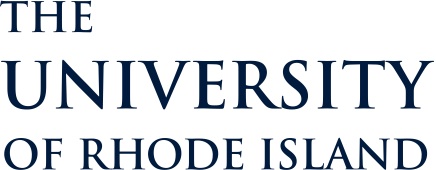Newswise — As digital information becomes more pervasive its role as evidence in commercial, criminal, or national cases is becoming more prominent. University of Rhode Island computer science students now have the opportunity to become digital detectives by becoming experts in the field of computer forensics, a field that helps obtain and analyze digital evidence from a wide variety of sources.
"Computer forensics is an emerging, rapidly expanding, and constantly changing field. Experts are rare and much sought after, " said Victor Fay-Wolfe, a professor of computer science and statistics who, with his colleagues James Kowalski, Lisa DiPippo, and Timothy Henry, was recently awarded a two-year, $300,000 National Science Foundation grant. The grant will help URI not only create a workforce of computer science graduates trained in computer forensics, but its education model can be replicated by other colleges and universities.
The NSF grant will help the University develop a computer/network forensics curriculum for undergraduate computer science majors that integrates new courses, and provides internships with partner organizations such as the Rhode Island State Police, Rhode Island Crime Lab, the URI Forensics Partnership, the Naval Criminal Investigative Service, and several local police departments and law firms.
The grant also creates a forensic track for computer science students enrolled in the master's degree program. In addition, versions of the undergraduate and graduate courses will be offered to practitioners in the field enrolled in a continuing education certificate program.
URI will help fill in some of the glaring gaps in the technology. URI student interns can bring the stumbling blocks they encounter at their job site back to a dedicated research lab where the undergraduates will join graduate students and faculty members will ponder and create possible solutions to these stumbling blocks as well as address other unsolved technology problems.
"URI is unique," says Fay-Wolfe. "Currently, there are very few computer forensics curriculum tracks at major universities. Those that do offer such tracks, do not combine education, practicum, and research for students."
Computer forensics experts are like pathologists who, drawing on an array of methods for discovering data in a computer system, can perform a computer autopsy. The experts look for evidence stored on floppy diskettes, zip, and jazz disks, tapes, digital cameras, memory sticks, printers, CDs, PDAs, game boxes, and network logs, intercepts, and traces.
Computer forensics can reveal what web sites have been visited, what searches performed, what files have been downloaded or deleted, e-mails received, sent or deleted, and password and logs. Attempts to conceal, destroy, or fabricate evidence, and deleted and encrypted files can also be discovered.
Computer forensics experts work on the local, state, and federal levels of law enforcement. Police departments, state crime labs, the FBI, and the IRS employ these forensic sleuths who can earn entry-level salaries from $60,000 to $90,000, according to Bobbi Koppel, director of URI Career Services.Computer forensics plays a big role in homeland security. It was computer forensics gumshoes that gained invaluable information from Zacarias Moussaoui, the would-be 20th hijacker for the September 11 attacks, who left his digital "fingerprints" on his laptop, e-mails, and hard drive.
Businesses also seek these kind of experts to tell them who attacked their networks, if employees are using the network for personal business, or if corporate espionage is occurring.
Finally, attorneys often employ such experts in criminal, civil, and domestic cases.
